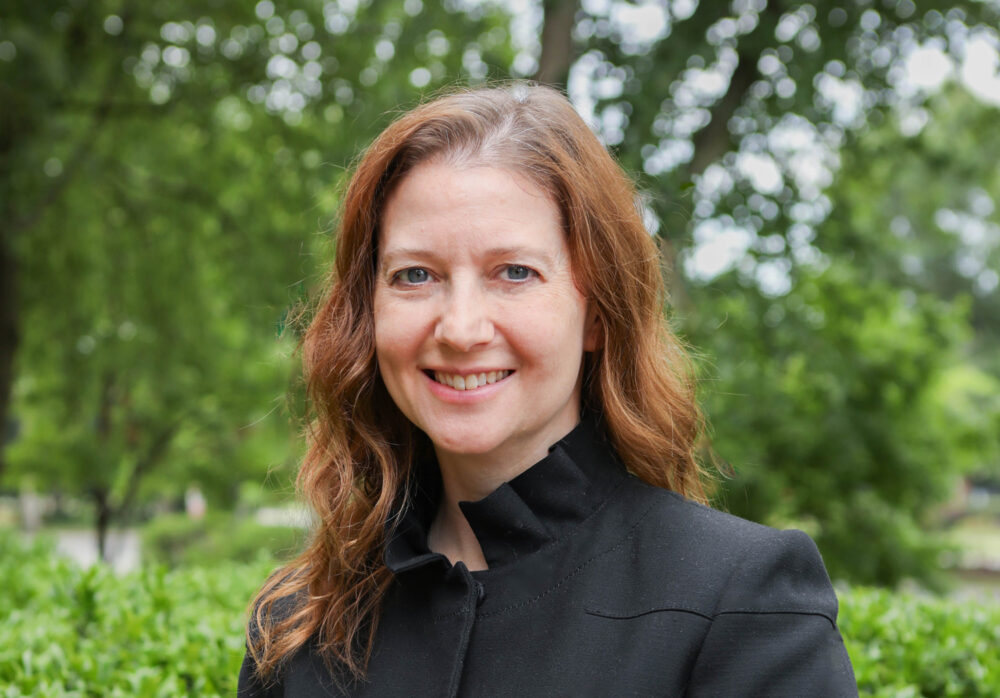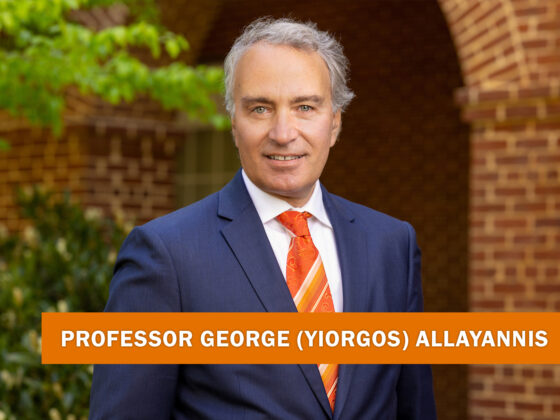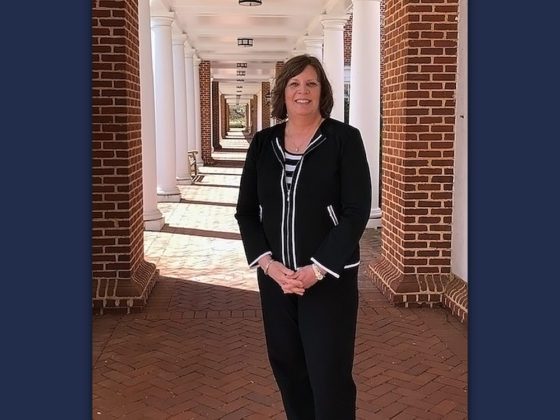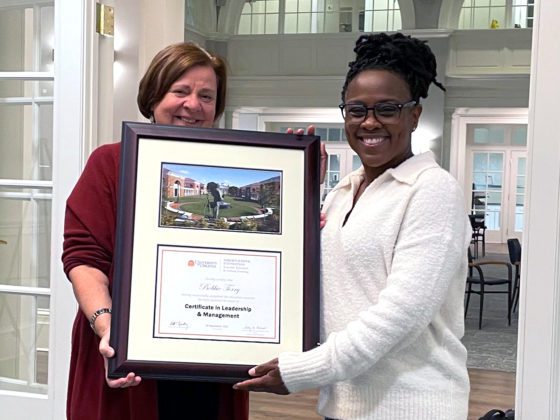Niki White, Chief Growth Officer at SRA Watchtower, first began her lifelong learning journey at Darden in 2013 when she came to Darden Executive Education & Lifelong Learning’s Bank Executive Leadership Program, a 5-day intensive program tailored for senior bank leaders. Since that program, she has gone on to earn her noncredit Certificate in Leadership & Management at Darden – and returned this year as a guest speaker at the Bank Executive Leadership Program. She recently shared insights from her Darden experience, how it continues to impact her career and how the banking industry is drastically changing.
Tell us about your background and current role.
I’m currently the Chief Growth Officer at SRA Watchtower, and I’ve been at the company for eight years. SRA Watchtower has delivered to the financial services market a holistic risk aggregation tool that provides the executive management team the insight into how risk is impacting their strategy. I was actually the first employee of the company, so I’ve seen every implementation in one capacity or another as the company has grown. Before my current role, I oversaw customer operations and built out that team before transitioning to build out the sales team.
Moving to SRA Watchtower was an easy transition as I was one of their customers. Implementing enterprise risk management (ERM) as the Chief Risk Officer at First Capital Bank allowed us to mature the integration of risk with strategy, ultimately leading to a highly profitable sale for our investors. I’m also a CPA by background and started out my career in public accounting at PwC.
What brought you to Darden?
When I was at First Capital Bank, I joined in a newly created position as the controller, with the intention to succeed the CFO. As a part of my succession plan and leadership growth, the company invested in me to participate in Darden’s Bank Executive Leadership Program. I got so much out of that week – being on Grounds and interacting with other professionals who became my peers and mentors. I decided to continue my lifelong learning journey at Darden and pursue my Certificate in Leadership & Management.
While pursuing my certificate, the bank was going through a merger, which can be turbulent and bring a lot of uncertainty. I wanted to be a source of strength for my team. I remember Leading Mindfully, in particular, being exactly what I need in that moment. Professor Lili Powell was incredibly impactful in my career, my transition and my ability to serve my company through a very difficult time. I also completed Servant Leadership that year, which was useful for the climate I was navigating.
Is there a moment from your Darden experiences that sticks with you to this day?
My biggest takeaway is that people have always been very important to me. My experience solidified that as you’re going through organizational change, meeting people where they are and helping them through the change is ultimately going to make for a stronger relationship, which makes for a more productive organization and helps to navigate the change. If you focus on the people, everything else will come.
I will also add that I learned the importance of having an immersive learning experience and being intentional with being present during the programming. It’s so hard to get away, but so important to take the time to disconnect from things going on outside the program to focus on your growth.
While pursuing my certificate, the bank was going through a merger, which can be turbulent and bring a lot of uncertainty. I wanted to be a source of strength for my team. I remember Leading Mindfully, in particular, being exactly what I needed in that moment.
You’ve had a successful career in banking and risk management. How do you think the industry, especially the risk management landscape, has changed over the years?
It’s unrecognizable from what it was a decade ago. Smaller institutions, in particular, have a higher expectation from a regulatory perspective of understanding the risk management practices – being able to articulate their risk position, understanding the financial metrics that affect each other, and how each individual, no matter where they are in the institution, is a critical piece of risk management. Where 10, 15 or especially 20 years ago, it was “this is my job, I do this thing and I don’t have that broader perspective.”
I saw that at First Capital Bank, as well as with the clients we serve. To have an effective risk program everyone has a risk manager. From the front lines of confirming that a customer is who they say they are when they cash a check, all the way up to financial reporting where those transactions ultimately are presented to the public. You must have controls in place and ensure that they’re sufficient and being followed.
Additionally, liquidity is managed very differently today given the recent and critical cryptocurrency failures of Silicon Valley Bank, Signature Bank, and Silvergate. Fintech is also disrupting the industry because it’s something that hasn’t been done before which is gaining a significant amount of regulatory scrutiny around effective risk management of those relationships as well as challenging the way business has historically been done. Today your customer could be anyone, anywhere.
With all of the change occurring in the banking industry, like blockchain and AI, do you think lifelong learning development is an important part of being able to succeed in the industry?
Most definitely. Our company posted on their LinkedIn page about my participation in the Bank Executive Leadership Program this year, returning as a presenter, and it spawned a lot of great conversations with clients and prospects to share more about it.
There are also meaningful learning opportunities hosted by the state banking societies, and their respective bank schools. Their ability to adapt to current market conditions and the current industry environment is critical for presenting these educational opportunities that are relevant to the day-to-day activities in an ever-changing landscape.
Is there anything else you’d like to add for anyone considering Darden or the Bank Executive Leadership Program?
I would like to highlight the value of the relationships that you create. I still talk to a number of the people from the experience, and we really bonded. I encourage people to have a way to stay in touch with their peers because there is a lot we can continue to share with each other beyond the classroom. They’re not your competition – they’re your collaborators.




